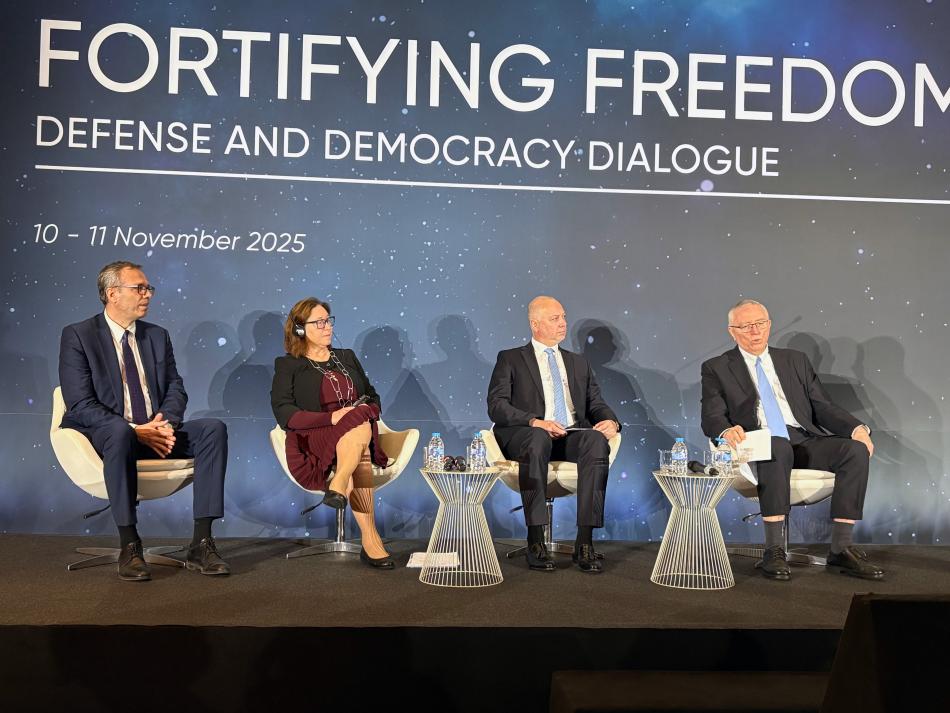Ms Schulerud, who is Special Advisor for the Rule of Law and Democracy at the Norwegian Ministry of Foreign Affairs, challenged participants to explore how Europe can counter the quieter, more gradual forms of democratic backsliding — from legal reforms that weaken checks and balances to media capture and the shrinking of civic space.
Without vibrant civil societies and trusted institutions, our democracies risk losing their foundation.
Ingrid Schulerud, Special Advisor for the Rule of Law and Democracy at the Norwegian Ministry of Foreign Affairs
In her intervention alongside Mr Ruslan Stefanov, Program Director, Center for the Study of Democracy, Mr Rosen Zhelyazkov, Prime Minister of the Republic of Bulgaria, and Mr Ognian Shentov, Chairman, Center for the Study of Democracy, Ms Schulerud reflected on the growing challenges facing democracies today — from hybrid threats and disinformation to declining trust in institutions — and highlighted the need for collective action.
“Without civil society, democracy becomes an empty shell,” she said. “We need a whole-of-society approach in all European countries to achieve a resilient and fortified Europe that can counter these threats.”
She pointed to recent data showing the erosion of civic space and democratic standards globally, noting that “without vibrant civil societies and trusted institutions, our democracies risk losing their foundation.”

Strengthening civil society
Ms Schulerud was invited to present the work of the EEA and Norway Grants to promote democracy and strengthen civil society across Europe.
“Through the EEA and Norway Grants, Norway and its partners invest not only in institutions and justice, but in trust — connecting citizens, governments, and international organisations,” Ms Schulerud added.
The event coincided with the launch of the EU Civil Society Strategy, which outlines the EU’s roadmap for strengthening civic space and supporting democracy. The Strategy focuses on three key pillars: fostering engagement through a new Civil Society Platform; protecting and supporting civil society organisations, including those under threat; and ensuring sustainable and transparent funding for the sector.
Ms Schulerud welcomed the initiative, noting that it aligns closely with the EEA and Norway Grants’ approach to strengthening civil society as a fundamental pillar of democracy and the rule of law. She called attention to that the new EEA Civil Society Fund, totalling more than 300 million euros, will support organisations promoting human rights, democracy, and good governance across 15 EU countries.
Next week, Norway, Iceland and Lichtenstein will sign with Bulgaria a new Memorandum of Understanding for the EEA and Norway Grants funding period 2021-2028 continuing more than 20 years of partnership.

3a5b.jpg)